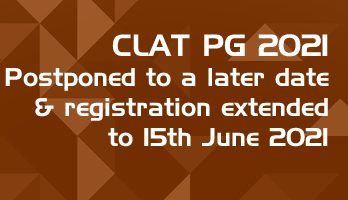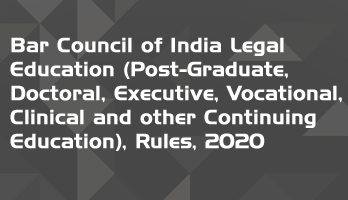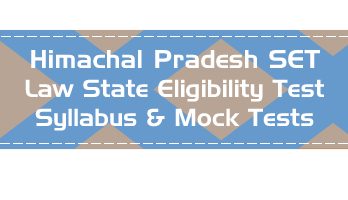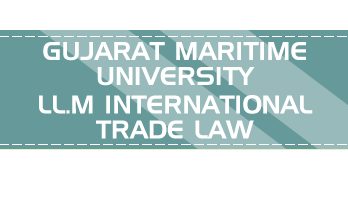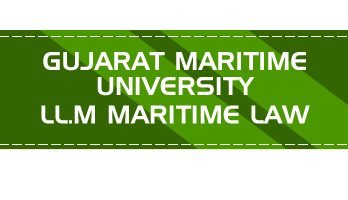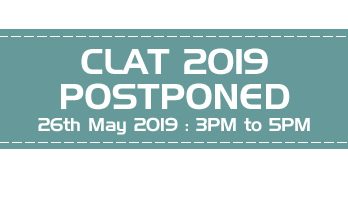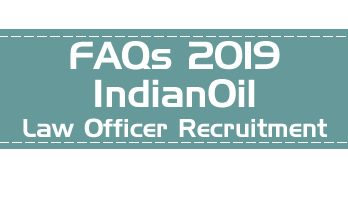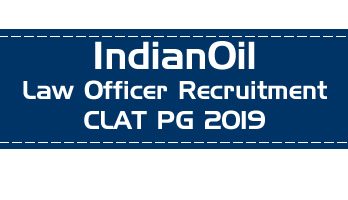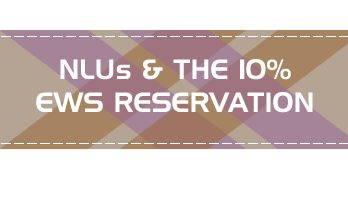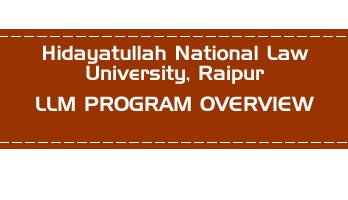Q : Is doing a correspondence course in a BBA valid for taking an LLB course further? If yes, can all the BBA papers be cleared in just one or two years?
Ans :
These are extracts from a notification on the Bar Council of India website . . .
“ EDUCATIONAL CRITERIA & EDUCATIONAL QUALIFICATION REQUIRED FOR ADMISSION INTO 3 YEAR AND 5 YEAR LAW COURSES IN INDIA
The Legal Education Committee at its meeting held on 30th April, considered the matter relating Rule-5 of the Legal Education Rules 2008 and clarified the definition of basic qualification and eligibility of candidates to get admitted into 3 year and 5 year Law Courses.
. . .
It was held that the proviso of this Rule dealing with distance and correspondence course vis-à-vis +2 and first degree certificate is very clear and needs no further explanation. As such such persons who have obtained +2 Higher Secondary Pass Certificate or First Degree Certificate after prosecuting studies in distance or correspondence method shall also be considered as eligible for admission in the Integrated 5 Years course or 3 years’ LL.B. course, as the case may be.
. . .
The qualifications of 10th, 12th (+2) and graduation may be obtained through any mode (distance / correspondence / open schooling method).
. . .
However, it is to be noted that the qualification of class 10th , 12th or graduation are subject to pass percentage of 45% for general category, 42% for OBC category, and 40% for SC/ST category subject to Rule-7 of Legal Education Rules is quoted below”
So, I understand this as :
- As long as the institution is UGC recognized.
- Offers a normal degree program – which is recognized by UGC / AICTE
- It may be distance education, correspondence or part-time.
the BBA is recognized for a 3 year LLB.
What about the one year or ‘One sitting’ degrees and PUCs ?
These are very dicey and there are plenty of fake and misleading institutions. So ensure that they are UGC / AICTE recognized, for the specific program before you enroll. As such, AFAIK, the one year degree programs are not recognized.
Q : How tough is the NET exam to qualify for a PhD?
Ans :
This is partly adapted from my answer to a similar questions.
With a proper approach, the UGC NET is fairly straightforward to clear.
If you don’t want to read the long answer below, the TLDR summary is :
- Practice Practice and Practice as many previous Question papers and mock tests as possible.
- Don’t go deep into theory. Identify your weak areas from the Q-papers you have solved and read only what is required, nothing more.
- Identify the patterns – i.e. which are the most tested areas and important questions.
- Keep practicing till you consistently score at least 85% in the mock tests
This is the long answer . . .
When the entire syllabus of a graduation and post-graduation subject are sought to be tested in 100 questions; there will be a certain pattern that emerges in how those questions are chosen.
For example, when we were putting together the question bank for UGC NET Law Paper II – we saw that questions tend to be focused in certain areas.
Though the Constitution of India has 448 articles, the questions mostly revolve around 50 articles. So focused study of these articles is sufficient rather than trying to mug-up the entire Constitution.
Similarly, we looked at all the previous paper 1’s since Dec 2004 and the question bank we came up with has a focused set of relevant questions and multiple variations of those questions.
So, to summarize, look at all the previous question papers of UGC NET Commerce and you will see that, there is a pattern of important and frequently asked questions.
Two ~ three months of focused & dedicated preparation is more than enough to clear your NET exam.
I always find it easier to focus on the preparation when I am running against a deadline. If I have too much time, I tend to slack off.
This is the outline of the strategy I would recommend :
Theory books are not required . . .
Since the UGC NET is a completely objective exam, studying extensive theory is not an ideal prep strategy.
The books covering the full syllabus are nothing but your graduation text books.
Selective & focused study is the best approach for the NET.
UGC NET Paper II, it is mostly a memory game. The entire syllabus of a subject is sought to be compressed and tested within 100 questions.
You just need to remember the right answer – even if you don’t know the detailed theory behind it.
For Paper 1, apart from memory based questions, you need to know the processes of how to calculate, select or guesstimate the right answers.
For both papers, it is all about practice, practice and more practice; since a most of the questions are repeated, adapted or derived from a standard pool of questions.
What I would suggest for both Paper 1 and 2 is :
[1] Solve at least 5 previous papers even before you start your prep.
[2] Review the papers you have attempted and you will identify your strengths and weaknesses. For example, in paper 1 you may be very good at data interpretation, but need to improve your reading comprehension etc.
[3] Watch good explanation videos of previous question papers which explain how to solve the different types of problems.
[4] Start your second round of practice and again attempt as many previous papers + mock tests as possible.
[5] Review each paper thoroughly before attempting the next paper
Within 15 ~ 20 days, you will see a significant improvement in your scores. Keep practicing till you consistently score above 85% and you are ready to crack the NET exam.
Q : How should one prepare for UGC NET (Management)?
Ans :
This is adapted from my answers to similar questions.
As I have been reiterating, when the entire syllabus of a graduation and post-graduation subject are sought to be tested in 100 questions; there will be a certain pattern that emerges in how those questions are chosen.
For example, when we were putting together the question bank for UGC NET Law Paper II – we saw that questions tend to be focused in certain areas.
Though the Constitution of India has 448 articles, the questions mostly revolve around 50 articles. So focused study of these articles is sufficient rather than trying to mug-up the entire Constitution.
Similarly, we looked at all the previous paper 1’s from NET and other exams since Dec 2004 and the question bank we came up with has a focused set of relevant questions and multiple variations of those questions.
So, to summarize, look at all the previous question papers of UGC NET and you will see that, there is a pattern of important and frequently asked questions.
Two ~ three months of focused & dedicated preparation is more than enough to clear your NET exam.
I always find it easier to focus on the preparation when I am running against a deadline. If I have too much time, I tend to slack off. So either a 3 month study with 2 – 3 hours dedicated every day or 2 months with around 5 hours spread across the day will be sufficient for most candidates.
This is the outline of the strategy I would recommend :
Theory books are not required . . .
IMHO, since the UGC NET is a completely objective exam, studying extensive theory is not an ideal prep strategy.
The books covering the full syllabus are nothing but your graduation text books.
Selective & focused study is the best approach for the NET.
UGC NET Paper II, it is mostly a memory game. The entire syllabus of a subject is sought to be compressed and tested within 100 questions.
You just need to remember the right answer – even if you don’t know the detailed theory behind it.
For Paper 1, apart from memory based questions, you need to know the processes of how to calculate, select or guesstimate the right answers.
For both papers, it is all about practice, practice and more practice; since a most of the questions are repeated, adapted or derived from a standard pool of questions.
What I would suggest for both Paper 1 and 2 is :
[1] Solve at least 5 previous papers even before you start your prep.
[2] Review the papers you have attempted and you will identify your strengths and weaknesses. For example, in paper 1 you may be very good at data interpretation, but need to improve your reading comprehension etc.
[3] Watch good explanation videos of previous question papers which explain how to solve the different types of problems.
[4] Start your second round of practice and again attempt as many previous papers + mock tests as possible.
[5] Review each paper thoroughly before attempting the next paper
Within 15 ~ 20 days, you will see a significant improvement in your scores. Keep practicing till you consistently score above 85% and you are ready to crack the NET exam.
Q : Is there any advantage of taking the UGC NET exam in commerce instead of management for MBAMMS students?
Ans :
Follow your purpose or follow the money . . .
I am assuming that you have checked the eligibility criteria for the NET exam and if you are eligible for two or more subjects, you can either :
- Follow the intent or purpose behind taking up the exam – i.e. you might be interested in pursuing PhD or teaching in a specific area which interests you. Demand-supply calculation is not applicable here.Or
- Follow the money – where you do a quick analysis on which stream has more jobs, higher paying jobs etc. Use a demand-supply mapping approach.
Do a little bit of Google research for Asst. Professor openings, which will give you some overall numbers on the demand.
As far as supply is concerned, look at the NET exam qualification numbers for the recent years. I am looking at the Nov numbers :
Subject\t- Total – Asst Prof only – JRF and Asst Prof – Appeared
(008) Commerce\t- 5425\t- 5005 – 420 – 90417
(017) Management – 1711 – 1613 – 98 – 28517
As you can see, there are normally more students who clear NET in commerce than in Management. Do a quick correlation and choose a subject which has the highest demand.
Q : What are the UGC-approved distance education universities in India?
Ans :
Go to Google and search for “UNIVERSITY GRANTS COMMISSION – Distance Education Bureau”
On their official website, there are links with lists of UGC recognized distance education institutions for various years.
The last list I remember seeing was the DEB 2016–17 list which covers programs up to 2017– . (The website was down when I posted this answer, so I cant include the exact link.)
Other than some specific institutions & universities which offer only distance programs (e.g. IGNOU), most of the others are regular universities which also have a distance education department.
I remember that some popular distance education institutions like the Annamalai University, TNOU and KSOU were dropped from the list, so check the latest list before you enroll in any distance program.
Q : Is there any relaxation in age for women of general category in UGC NET?
Ans :
Yes.
(This info is updated for the Dec exam, based on the rules)
I. For Assistant Professor Only :
There is no upper age limit for the exam, so relaxation is not relevant.
II. For Assistant Professor & JRF
(i) Not more than 30 years as on 01.12. .
A relaxation up to 5 years is provided to the candidates belonging to OBC (Non-creamy layer, as per the Central list of OBC/SC/ST/PwD/Transgender categories and to women applicants.
*** The relaxation is for all women applicants ***
Relaxation will also be provided to the candidates having research experience, limited to the period spent on research in the relevant/related subject of post graduation degree, subject to a maximum of 5 years, on production of a certificate from appropriate authority.
Three years relaxation in age will be permissible to the candidates possessing L.L.M. Degree.
A relaxation of up to 5 years is provided to the candidates who have served in the armed forces subject to the length of service in the armed forces up to the first day of the month in which the concerned UGC-NET is to be held.
Even if a candidate comes under several categories, total age relaxation on the above ground(s) shall not exceed five years under any circumstances. (e.g. A woman candidate from a reserved category, with LLM degree will still get only a total of 5 years of relaxation.)
Q : Is it possible to pursue a PhD in constitutional law if I don’t have any LLB and LLM degrees?
Ans :
This is a very generic answer , based on my theoretical understanding . . . and this is what I would have done.
First let us look at the basic PhD eligibility :
In general, while Indian universities can prescribe their own criteria for admission to PhD programmes, most of them have the same standard requirements i.e. A Post Graduation / Masters Degree or equivalent and a NET qualification.
Apart from the educational requirements, there will be additional steps like interview, review of research proposal etc.
Some autonomous / specialized institutions like the IITs & IIMs may tweak the PhD eligibility process to meet their own requirements – for example, allowing people with just a graduation, but with relevant work experience, to take up a PhD.
Coming to Constitutional law . . .
You can pursue a PhD in constitutional law in either Universities which have a law faculty or in Institutions like the NLU / NLS.
I would suggest the following process :
[1] It is highly recommended that you should have a Master Degree. Even if it is in a different area other than Law. Even an MBA would be good.
[2] Relevant work experience is also essential / highly recommended; especially of you don’t have a relevant PG / UG qualification in Law.
[3] Take up and clear the UGC NET in the subject of your PG – even if it is not in Law. Since it will show that you have the aptitude required for pursuing a PhD.
[4] Work on a focused SOP – Statement of Purpose to explain why do you wish to pursue a PhD in Constitutional Law, especially if you don’t have LLB and LLM degrees.
Connect your work experience, career aspirations and other factors to justify your rationale. Remember, you need to convince someone to be your guide for PhD.
[5] Shortlist the colleges & institutes you wish to target and get the contact details of the HoDs of the Law Faculty or the person in charge of PhD admissions.
[6] Take an appointment and go meet them in person. Make your pitch and also give them a 2~3 page printed document which summarizes your bio & your PhD pitch.
I would suggest trying the NLUs / NLS first, since they may be more flexible in terms of their requirements.
What about foreign Institutions ?
Things are a lot more flexible with foreign universities and I believe it is possible to pursue a PhD more easily abroad than in India.
But a PhD in Indian Constitutional Law from a foreign university may not have much of a relevance in India. So I would not suggest this option.
Q : How do I prepare for UGC net exam paper 1 and paper 2 commerce?
Ans :
This is partly adapted from my answer to a similar question about UGC NET Law, but this applies to all subjects . . .
As I have been reiterating, when the entire syllabus of a graduation and post-graduation subject are sought to be tested in 100 questions; there will be a certain pattern that emerges in how those questions are chosen.
For example, when we were putting together the question bank for UGC NET Law Paper II – we saw that questions tend to be focused in certain areas.
Though the Constitution of India has 448 articles, the questions mostly revolve around 50 articles. So focused study of these articles is sufficient rather than trying to mug-up the entire Constitution.
Similarly, we looked at all the previous paper 1’s since Dec 2004 and the question bank we came up with has a focused set of relevant questions and multiple variations of those questions.
So, to summarize, look at all the previous question papers of UGC NET Commerce and you will see that, there is a pattern of important and frequently asked questions.
Two ~ three months of focused & dedicated preparation is more than enough to clear your NET exam.
I always find it easier to focus on the preparation when I am running against a deadline. If I have too much time, I tend to slack off.
This is the outline of the strategy I would recommend :
Theory books are not required . . .
Since the UGC NET is a completely objective exam, studying extensive theory is not an ideal prep strategy.
The books covering the full syllabus are nothing but your graduation text books.
Selective & focused study is the best approach for the NET.
UGC NET Paper II, it is mostly a memory game. The entire syllabus of a subject is sought to be compressed and tested within 100 questions.
You just need to remember the right answer – even if you don’t know the detailed theory behind it.
For Paper 1, apart from memory based questions, you need to know the processes of how to calculate, select or guesstimate the right answers.
For both papers, it is all about practice, practice and more practice; since a most of the questions are repeated, adapted or derived from a standard pool of questions.
What I would suggest for both Paper 1 and 2 is :
[1] Solve at least 5 previous papers even before you start your prep.
[2] Review the papers you have attempted and you will identify your strengths and weaknesses. For example, in paper 1 you may be very good at data interpretation, but need to improve your reading comprehension etc.
[3] Watch good explanation videos of previous question papers which explain how to solve the different types of problems.
[4] Start your second round of practice and again attempt as many previous papers + mock tests as possible.
[5] Review each paper thoroughly before attempting the next paper
Within 15 ~ 20 days, you will see a significant improvement in your scores. Keep practicing till you consistently score above 85% and you are ready to crack the NET exam.
Q : How do I prepare for the UGC-NET in the HRM (code 55) subject with self-study?
Ans :
This is adapted from my answer to a similar question . . .
Two ~ three months of focused & dedicated preparation is more than enough to clear your NET exam.
This is the outline of the strategy I would recommend :
Theory books are not required . . .
Since the UGC NET is a completely objective exam, studying extensive theory is not an ideal prep strategy.
The books covering the full syllabus are nothing but your graduation text books.
Selective & focused study is the best approach for the NET.
UGC NET Paper II, it is mostly a memory game. The entire syllabus of a subject is sought to be compressed and tested within 100 questions.
You just need to remember the right answer – even if you don’t know the detailed theory behind it.
For Paper 1, apart from memory based questions, you need to know the processes of how to calculate, select or guesstimate the right answers.
For both papers, it is all about practice, practice and more practice; since a most of the questions are repeated, adapted or derived from a standard pool of questions.
What I would suggest for both Paper 1 and 2 is :
[1] Solve at least 5 previous papers even before you start your prep.
[2] Review the papers you have attempted and you will identify your strengths and weaknesses. For example, in paper 1 you may be very good at data interpretation, but need to improve your reading comprehension etc.
[3] Watch good explanation videos of previous question papers which explain how to solve the different types of problems.
[4] Start your second round of practice and again attempt as many previous papers + mock tests as possible.
[5] Review each paper thoroughly before attempting the next paper
Within 15 ~ 20 days, you will see a significant improvement in your scores. Keep practicing till you consistently score above 85% and you are ready to crack the NET exam.
Q : What is the syllabus of physical science in the NET exam ?
Ans :
I believe you are referring to the CSIR NET exam.
Physical Sciences is part of the CSIR NET exam.
The CSIR-UGC (NET) Exam for Award of Junior Research Fellowship and Eligibility for Lectureship shall be a Single Paper Test having Multiple Choice Questions (MCQs).
The question paper shall be divided in three parts.
Part ‘A’
This part shall carry 20 questions pertaining to General Science, Quantitative Reasoning & Analysis and Research Aptitude. The candidates shall be required to answer any 15 questions.
Each question shall be of two marks. The total marks allocated to this section shall be 30 out of 200.
Part ‘B’
This part shall contain 25 Multiple Choice Questions (MCQs) generally covering the topics given in the Part ‘A’ (CORE) of syllabus.
Each question shall be of 3.5 Marks. The total marks allocated to this section shall be 70 out of 200.Candidates are required to answer any 20 questions.
Part ‘C’
This part shall contain 30 questions from Part ‘B’ (Advanced) and Part ‘A’ that are designed to test a candidate’s knowledge of scientific concepts and/or application of the scientific concepts.
The questions shall be of analytical nature where a candidate is expected to apply the scientific knowledge to arrive at the solution to the given scientific problem.
A candidate shall be required to answer any 20. Each question shall be of 5 Marks. The total marks allocated to this section shall be 100 out of 200.
There will be negative marking @25% for each wrong answer.
The Model Question Paper and detailed syllabus is available on the official CSIR-HRDG website. (Google will help).
Q : How can I crack the UGC NET exam in two months?
Ans :
Two months of focused & dedicated preparation is more than enough to clear your NET exam.
This is the outline of the strategy I would recommend :
Theory books are not required . . .
Since the UGC NET is a completely objective exam, studying extensive theory is not an ideal prep strategy.
The books covering the full syllabus are nothing but your graduation text books.
Selective & focused study is the best approach for the NET.
UGC NET Paper II, it is mostly a memory game. The entire syllabus of a subject is sought to be compressed and tested within 100 questions.
You just need to remember the right answer – even if you don’t know the detailed theory behind it.
For Paper 1, apart from memory based questions, you need to know the processes of how to calculate, select or guesstimate the right answers.
For both papers, it is all about practice, practice and more practice; since a most of the questions are repeated, adapted or derived from a standard pool of questions.
What I would suggest for both Paper 1 and 2 is :
[1] Solve at least 5 previous papers even before you start your prep.
[2] Review the papers you have attempted and you will identify your strengths and weaknesses. For example, in paper 1 you may be very good at data interpretation, but need to improve your reading comprehension etc.
[3] Watch good explanation videos of previous question papers which explain how to solve the different types of problems.
[4] Start your second round of practice and again attempt as many previous paper + mock tests as possible.
[5] Review each paper thoroughly before attempting the next paper
Within 15 ~ 20 days, you will see a significant improvement in your scores. Keep practicing till you consistently score above 85% and you are ready to crack the NET exam.
Q : What are the best books for preparing for the UGC NET (history)?
Ans :
This answer is adapted from my answer to a similar question I answered earlier today . . .
Books are not required . . .
Since the UGC NET is a completely objective exam, studying extensive theory is not an ideal prep strategy. The books covering the full syllabus are nothing but your graduation text books.
Selective & focused study is the best approach for the NET.
UGC NET Paper II, it is mostly a memory game. You just need to remember the right answer – even if you don’t know the detailed theory behind it.
For Paper 1, apart from memory based questions, you need to know the processes of how to calculate, select or guesstimate the right answers.
For both papers, it is all about practice, practice and more practice; since a most of the questions are repeated, adapted or derived from a standard pool of questions.
As you practice more questions, you will also brush up on the theoretical aspects. Remember, the UGC NET syllabus is not different from what you have already studied in your graduation & PG.
What I would suggest for both Paper 1 and 2 is :
[1] Solve at least 5 previous papers even before you start your prep.
[2] Review the papers you have attempted and you will identify your strengths and weaknesses. For example, in paper 1 you may be very good at data interpretation, but need to improve your reading comprehension etc.
[3] Watch good explanation videos of previous question papers which explain how to solve the different types of problems.
[4] Start your second round of practice and again attempt as many previous paper + mock tests as possible.
[5] Review each paper thoroughly before attempting the next paper
Within 15 ~ 20 days, you will see a significant improvement in your scores. Keep practicing till you consistently score above 85% and you are ready to crack the NET exam.
Q : Which books a person should follow for UGC net paper 1 and 2 for commerce?
Ans :
Books are not required . . .
Since the UGC NET is a completely objective exam, studying extensive theory is not an ideal prep strategy. The books covering the full syllabus are nothing but your graduation text books.
Selective & focused study is the best approach for the NET.
UGC NET Paper II, it is mostly a memory game. You just need to remember the right answer – even if you don’t know the detailed theory behind it.
For Paper 1, apart from memory based questions, you need to know the processes of how to calculate, select or guesstimate the right answers.
For both papers, it is all about practice, practice and more practice; since a most of the questions are repeated, adapted or derived from a standard pool of questions.
What I would suggest for both Paper 1 and 2 is :
[1] Solve at least 5 previous papers even before you start your prep.
[2] Review the papers you have attempted and you will identify your strengths and weaknesses. For example, in paper 1 you may be very good at data interpretation, but need to improve your reading comprehension etc.
[3] Watch good explanation videos of previous question papers which explain how to solve the different types of problems.
[4] Start your second round of practice and again attempt as many previous paper + mock tests as possible.
[5] Review each paper thoroughly before attempting the next paper
Within 15 ~ 20 days, you will see a significant improvement in your scores. Keep practicing till you consistently score above 85% and you are ready to crack the NET exam.
Q : How can we know if the bar council registration is under process or not?
Ans :
AFAIK. It is completely manual . . .
The answer may need a slight change depending on the specific state that you are referring to, but I believe most State Bar Councils are currently following a manual registration mode – and there is no online status tracking or updates.
Some SBCs may send a SMS update & an email the registration process is completed.
If you wish to practice as a Advocate / Lawyer in India :
(1) Complete LLB
(2) Enroll with state Bar council
(3) Start practice as an Advocate
(4) Clear the All India Bar Exam – AIBE within two years of enrollment
(5) If unable to clear – stop practice as a Advocate – continue to attempt AIBE and clear it.
(6) Resume practice as a lawyer
Since registering the the SBC is the mandatory second step; and the SBC registration details have to be entered in the AIBE exam application form, the registration is usually fast.
Take the originals + 3 ~ 4 copies of your LLB degree certificate (Provisional or Final) + marks cards and other documents for ID & Address proof and visit your State Bar Council office.
Fill up the forms, make the payment and submit the application forms. Take their phone number and follow up with them for your Enrollment number & the registration is complete when you receive your State Bar Council Registration number.
Q : Is SSLC eligible for an LLB?
Ans :
No.
The 3 year LLB is a ‘higher degree’ program; whereby even though it is a Bachelor’s Degree, you have to have a prior graduation in any field before taking up the program.
The 5 year LLB is an integrated dual-degree program, usually a BA LLB, BCom, LLB, BBA LLB etc. The eligibility for the 5 year program is +2 or 12th standard or II PUC or equivalent.
So, you need to complete a +2 at the minimum to take up a 5 year LLB program.
Check the specific college / university brochure for other criteria such as minimum marks, entrance process etc. As such, there is no upper age limit for the LLB program as on 4th Sep .
Q : Is it valuable to do LLB from Rajdhani University, Rajasthan university? Which one is better, academic course or professional course?
Ans :
Sari Khudai Ek Taraf Joru Ka Bhai Ek Taraf . . .
This is a very pragmatic and long answer; and I am sure there will be folks who may have a different view; but this is my humble opinion.
In India, there are Tier 1, Tier 2 and Tier 3 law colleges.
[1] In tier-3 and some tier-2 Law Colleges admission is done on a first-come-first-admitted basis. No entrance exam. Just meet the minimum criteria in terms of your previous academics and pay the fees.
These are proper colleges, recognized by the Bar Council and have 3 year & 5 year LLB courses, affiliated to various Universities.
They normally will not have any placement process and the other facilities also are quite basic.
But, you will get a proper LLB degree after completing the course.
[2] There are tier 2 colleges that have their own entrance exam and in some states there is a common entrance exam for Law Courses across many participating colleges – tier 2 & 3.
For example, the Andhra Pradesh – AP LAWCET, Telangana – TS LAWCET, Kerala CEE , DU Law entrance exam etc.
Bulk of the seats are filled through the exams, but there will usually be a ‘Management quota’ of seats with higher fees in private colleges that participate in these common entrance process.
[3] Tier 1 – CLAT is the common entrance exam for the National Law Schools / National Law Universities across India.
These tier 1 institutes have placement process, superb facilities and the competition for getting admission is also quite tough.
Note : NLU Delhi and HPNLU Shimla do not participate in the CLAT as they have their own separate entrance exams.
How to choose ?
If pursuing a corporate career is your primary aim, I would suggest trying to get into one of the NLUs / NLS. Because, most corporate law firms go there to recruit law grads for entry level roles. The NLU / NLS also have excellent faculty + infrastructure + quality of peers.
They are like the ‘Joru ka bhai’. They are in a class by themselves when it comes to corporate interaction and placements.
All other colleges are like the ‘Sari khudai’, when it comes to placements; because the top law firms rarely visit any other campuses other than Tier 1.
If quality of faculty + peers and a good learning experience is a priority, try and get into the Tier 2 colleges.
You will have a good college experience, but placements will be trivial / non-existent.
If getting a LLB degree is your aim; any college, even a Tier 3 college will do, since you will eventually get a BCI approved LLB degree.
In terms of your ability to practice as an advocate and get clients; where you graduate from is not so relevant.
Academic course or professional course ?
Usually all full-time LLB courses are professional courses – i.e. you can practice after you have completed your LLB. These are BCI approved.
Academic LLBs are usually distance education courses; and you cannot practice as an advocate
I would always suggest a full-time professional LLB, since it will serve both academic and professional purposes and increase your career options.
The additional subjects + workload in a professional LLB is worth the effort.
Rajdhani University, Rajasthan university – Since I am not so familiar with LLB from either of these institutions, I will refrain from commenting on the same. Based on the above answer, you can take a call on which tier these institutions will come under and take a call accordingly.
Q : What is the process after you qualify for UGC NET – Assistant Professor only?
Ans :
Qualifying exam vs. Selection exam . . .
The UGC NET is a qualifying exam, whereas exams like the Judicial Services exams are selection exams.
In the UGC NET, the top 6% of the eligible candidates are declared as ‘qualified’.
However, that does not guarantee a job.
The next step is to track the notifications from Government and Private colleges calling applicants for faculty positions and apply for the same.
The selection will be based on your prior academic credentials, UGC NET scores, interview performance, past experience etc.
In the meanwhile, try to get your foot in the door as a guest faculty in any college, since it will count towards your overall experience and will also increase your chances of getting into a full-time faculty position.
So, to summarize; after you are UGC NET qualified :
(1) Make a short-list of the colleges where you can try and get-in as a guest faculty; even if the pay is not good.
(2) Find some good websites that are tracking faculty vacancy announcements and keep applying.
(3) Don’t be choosy – even if you have to move to a different town or take up a role in a nondescript college, that’s ok to start your career; give it your best shot.
(4) Even if you are not interested in a particular college, do attend the interviews to get used to the process & get interview experience.
(5) Have a plan B – you cannot keep waiting for ever. Have an alternate career option.
Q : What should I take, management or commerce in UGC NET, if I have pursued MBA (finance)? What are the differences between them?
Ans :
Demand vs. Supply & Personal interest . . .
About which one to choose, I would follow the following rationale. See if it works for you . . .
Consider the intentions behind taking up the UGC NET. It is usually to pursue a career in teaching.
While you will mostly be teaching in the subject(s) that are part of your Masters degree. You will normally be recruited on the basis of the subject in which you have cleared your NET exam.
If you have a choice of taking the exam in multiple subjects, consider the number of opportunities that are usually available in each stream and the number of aspirants – demand vs. supply.
For example, a cursory check would seem to indicate that there are more number of Management colleges being set-up these days and hence I seem to see more number of openings for management faculty.
Commerce colleges tend to be relatively older & established + apart from the experienced faculty, there is already a relatively huge pool of eligible candidates who have cleared NET in Commerce.
Also, MBA tends to have a number of subjects that includes the major Commerce subjects; therefore Management faculty can usually teach Commerce subjects.
In 2017, the number of people who cleared the NET Exam in each stream :
(008) Commerce – 5425 qualified
(017) Management -1711 qualified
Based on the above, I would have chosen to take up the NET in Management, so you can do your own assessment based on your criteria and interests and decide.
Q : How does one become a member of the bar council? Are there any fees regarding it?
Ans :
Check with your particular State Bar Council . . .
After you complete your LLB and receive your Degree Certificate (Provisional or Final) you can approach your local State Bar Council for registration.
Fill in the application forms, attach your certificates + marks sheets, photo ID proof, some passport size photos – check your state BC website for the application forms and exact document specifications; but overall, the list above is standard.
The exact fees will depend on what your State Bar Council has decided. While the standard components such as State BC enrollment fees (Rs.600/-) and BCI fees (Rs.150) are common to all states; there will be several other addons such as application fee, welfare fund, library fee etc. and will differ from state to state.
Overall, the cost of enrollment may be around Rs.10,000/-
The Delhi Bar Council & BCI fees can be taken as an indicator for other states also : (As of Aug )
ENROLLMENT FORM – Rs. 1,000/- (Cash)
ENROLLMENT FEE Rs. 600.00 In Case SC/ST Candidate Rs. 100/-
Indigent & Disabled Lawyers Account Rs. 2200
Library Fund Rs. 2500
Building Fund Rs. 2500
Welfare Fund (BCI Rule 40) Rs. 1000
Identity Card Rs. 150
———————–——————-
Total Amount Rs. 8950 (Cash)
—————-————————–
Bar Council of India Rs. 150
Advocate Welfare Fund Trustee Committee Rs. 200 Membership Fee
Rs. 500/ Subscription Fee (10 Years)
————–—————————–
Total Amount Rs. 700/- (Cash)
—————–———-—————-
To practice as an Advocate in India, a student has to pass the AIBE – All India Bar Exam within two years of registering with the Bar Council.
There is a ‘grace period’ of two years from the date of enrollment with the Bar Council, during which a LLB graduate can practice as a Advocate (i.e. represent clients in a Court of law)
If the student is unable to clear the AIBE, he/she has to stop practicing as a lawyer (at the end of 2 years from State Bar council enrollment date) and can recommence practice only after clearing the AIBE.
However, there is no restriction on a LLB graduate for pursuing higher education (LLM / MBA etc.) or taking up employment on the basis of the LLB or even starting any other business.
To summarize in simple steps, if you wish to practice as a Advocate / Lawyer in India :
(1) Complete LLB
(2) Enroll with state Bar council
(3) Start practice as an Advocate
(4) Clear the All India Bar Exam – AIBE within two years of enrollment
(5) If unable to clear – stop practice as a Advocate – continue to attempt AIBE and clear it.
(6) Resume practice as a lawyer.
If you don’t intend to practice and you are involved in any other business or in full time employment, you can skip the AIBE.
But I strongly recommend all students to clear the AIBE at the earliest possible, since it is mandatory whenever you wish to practice; and it is simpler to clear the exam when you are still fresh with your LLB subjects.
Also, if there are any changes in the rules at some point, in terms of age limit, minimum marks etc. it will not be retrospective, so it is better to clear the AIBE as soon as you are eligible.
Note: At the time of answering this question, there is no restriction in terms of number of attempts or any age limit for taking up the AIBE and the exam results are given as Pass/Fail.
Q : What is a bar council?
Ans :
Bar Council Exam = All India Bar Exam a.k.a AIBE
To practice as an Advocate in India, after completing LLB, a student has to register with the respective state Bar Council and pass the AIBE – All India Bar Exam within two years.
There is a ‘grace period’ of two years from the date of enrollment with the Bar Council, during which a LLB graduate can practice as a Advocate (i.e. represent clients in a Court of law)
If the student is unable to clear the AIBE, he/she has to stop practicing as a lawyer (at the end of 2 years from State Bar council enrollment date) and can recommence practice only after clearing the AIBE.
However, there is no restriction on a LLB graduate for pursuing higher education (LLM / MBA etc.) or taking up employment on the basis of the LLB or even starting any other business.
To summarize in simple steps, if you wish to practice as a Advocate / Lawyer in India :
(1) Complete LLB
(2) Enroll with state Bar council
(3) Start practice as an Advocate
(4) Clear the All India Bar Exam – AIBE within two years of enrollment
(5) If unable to clear – stop practice as a Advocate – continue to attempt AIBE and clear it.
(6) Resume practice as a lawyer.
If you don’t intend to practice and you are involved in any other business or in full time employment, you can skip the AIBE.
But I strongly recommend all students to clear the AIBE at the earliest possible, since it is mandatory whenever you wish to practice; and it is simpler to clear the exam when you are still fresh with your LLB subjects.
Also, if there are any changes in the rules at some point, in terms of age limit, minimum marks etc. it will not be retrospective, so it is better to clear the AIBE as soon as you are eligible.
Note: At the time of answering this question, there is no restriction in terms of number of attempts or any age limit for taking up the AIBE and the exam results are given as Pass/Fail.


